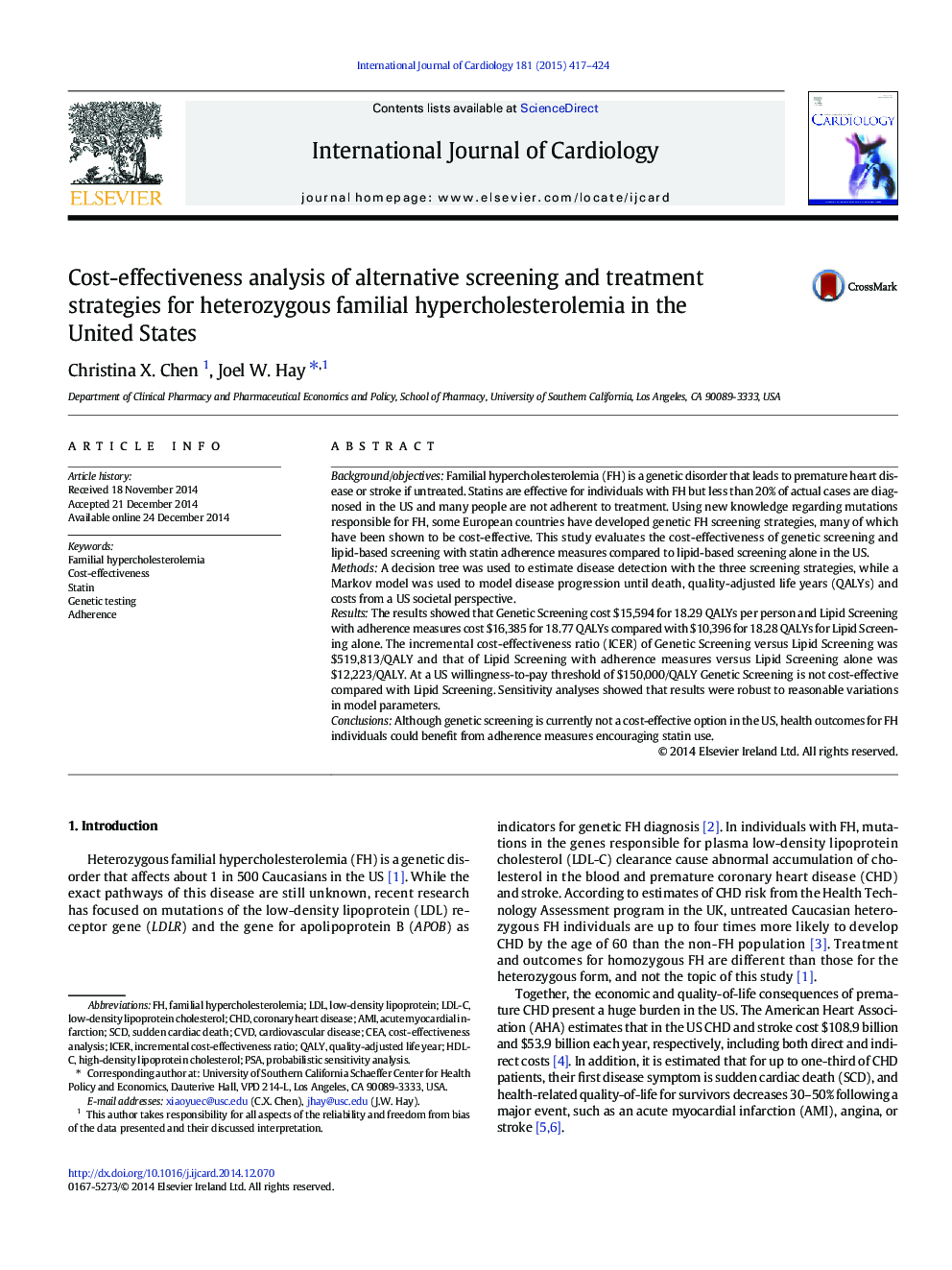| Article ID | Journal | Published Year | Pages | File Type |
|---|---|---|---|---|
| 5968558 | International Journal of Cardiology | 2015 | 8 Pages |
Background/objectivesFamilial hypercholesterolemia (FH) is a genetic disorder that leads to premature heart disease or stroke if untreated. Statins are effective for individuals with FH but less than 20% of actual cases are diagnosed in the US and many people are not adherent to treatment. Using new knowledge regarding mutations responsible for FH, some European countries have developed genetic FH screening strategies, many of which have been shown to be cost-effective. This study evaluates the cost-effectiveness of genetic screening and lipid-based screening with statin adherence measures compared to lipid-based screening alone in the US.MethodsA decision tree was used to estimate disease detection with the three screening strategies, while a Markov model was used to model disease progression until death, quality-adjusted life years (QALYs) and costs from a US societal perspective.ResultsThe results showed that Genetic Screening cost $15,594 for 18.29 QALYs per person and Lipid Screening with adherence measures cost $16,385 for 18.77 QALYs compared with $10,396 for 18.28 QALYs for Lipid Screening alone. The incremental cost-effectiveness ratio (ICER) of Genetic Screening versus Lipid Screening was $519,813/QALY and that of Lipid Screening with adherence measures versus Lipid Screening alone was $12,223/QALY. At a US willingness-to-pay threshold of $150,000/QALY Genetic Screening is not cost-effective compared with Lipid Screening. Sensitivity analyses showed that results were robust to reasonable variations in model parameters.ConclusionsAlthough genetic screening is currently not a cost-effective option in the US, health outcomes for FH individuals could benefit from adherence measures encouraging statin use.
